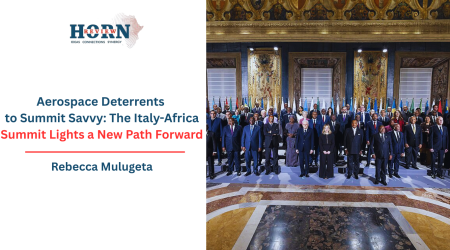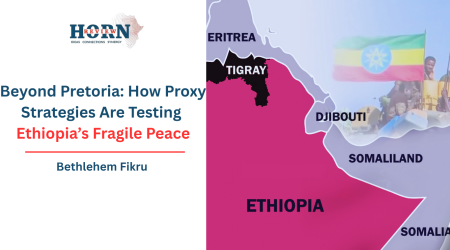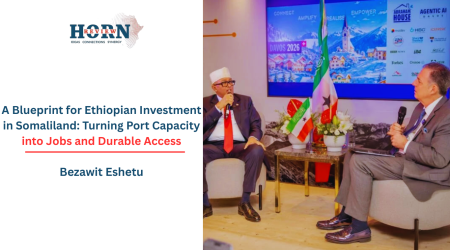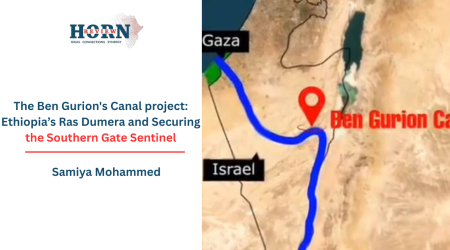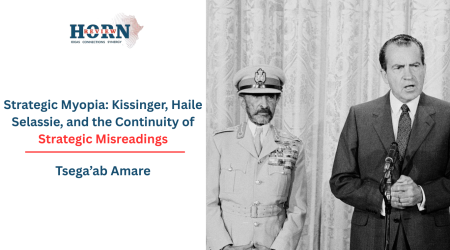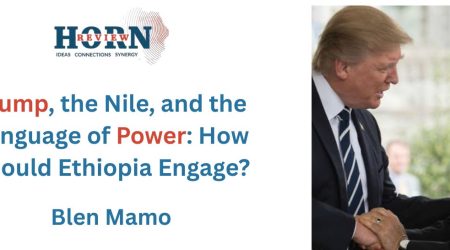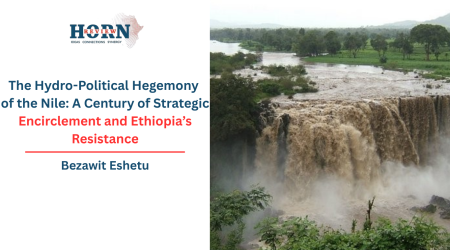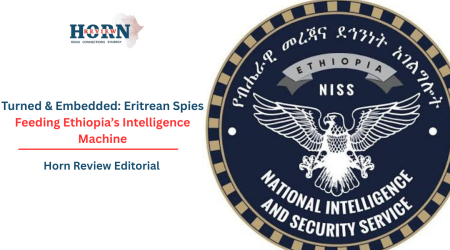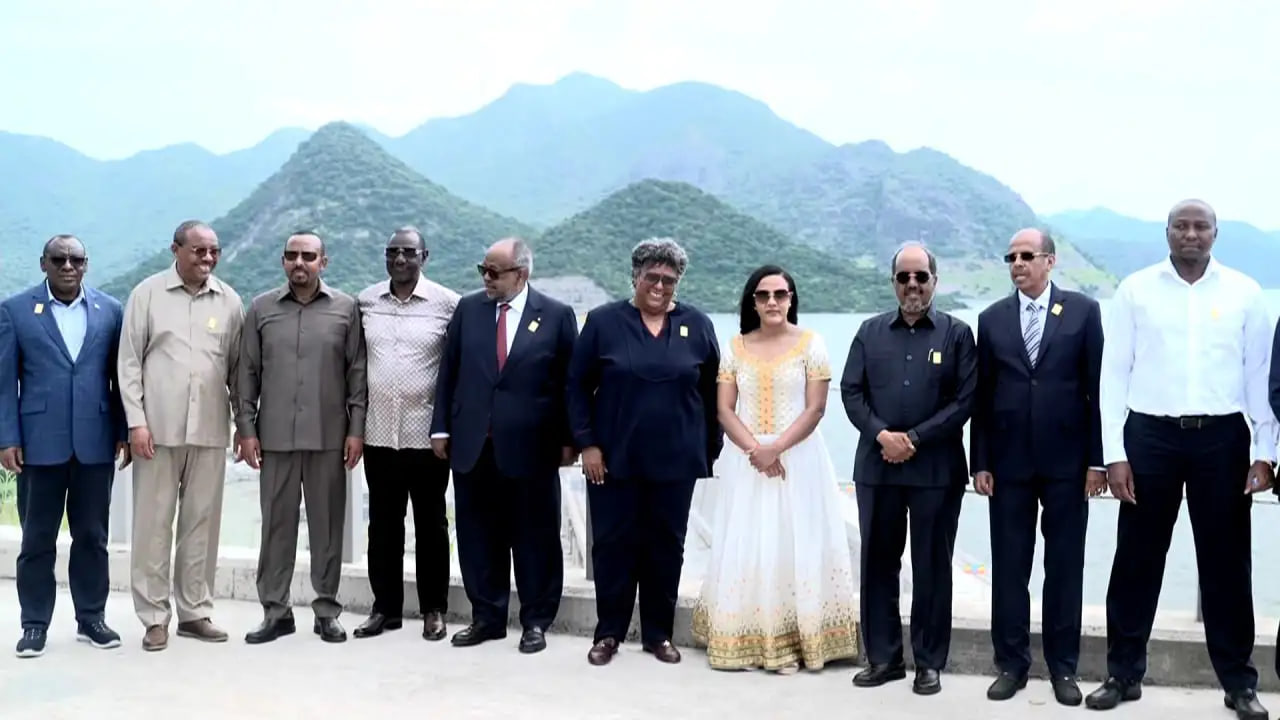
15
Sep
Damming The Past, Powering The Future: GERD, The CFA, And The New Nile Order
Ethiopia inaugurated the Grand Ethiopian Renaissance Dam (GERD) on September 9, 2025, in a ceremony where politics were staged as deliberately as the engineering. What could have been a national celebration instead became a continental performance. Kenyan President William Ruto and South Sudan’s Salva Kiir stood alongside Ethiopia’s leaders, joined by the African Union Commission Chairperson and IGAD’s executive secretary, even as Egypt and Sudan stayed away. The symbolism was unmistakable. For the first time, an upstream project that once made Ethiopia an isolated outlier was endorsed as a shared African achievement.
That reversal carries historical weight. For most of the twentieth century, Ethiopia was deliberately excluded from the treaties that governed the Nile. The 1929 Anglo-Egyptian Agreement and the 1959 Nile Waters Agreement allocated the river almost entirely to Egypt and Sudan, while the upstream state that generated more than 85 percent of its flow was sidelined. The inauguration reframed this legacy of marginalization. By convening regional peers at GERD’s gates, Ethiopia signaled that legitimacy no longer derives from treaties it never signed, but from recognition earned through shared norms and material contributions.
That peer attendance matters because recognition by neighbors is itself a source of political legitimacy. When President Ruto praised GERD as a demonstration of African capacity and tied it to shared development goals, and when President Kiir spoke of collective benefit and future electricity access, those speeches did more than flatter. They echoed the normative language of the Cooperative Framework Agreement (CFA): equity, reasonable use, and cooperation. Such endorsement complicates Egypt’s simultaneous démarche to the UN Security Council, where Egypt framed GERD as a unilateral act lacking legitimacy and invoked historic treaties as the legal baseline. In short, Ethiopia staged peer legitimation in public while Egypt appealed to a distant chamber to preserve a rights-based narrative rooted in 1929 and 1959 arrangements.
Ethiopia’s counter-narrative paired law and symbolism to reject the unilateralism charge. It argued that legitimacy does not flow from treaties it never signed but from modern norms, the principles embodied in the CFA and reflected in the 1997 UN Watercourses Convention: equitable and reasonable utilization and a duty not to cause significant harm. By invoking these instruments and pointing to the regional leaders who attended the inauguration, Ethiopia reframed GERD as consistent with an emergent basin regime rather than an act outside legal or cooperative boundaries. Treaty law supports this view as well: the Vienna Convention principle that no treaty binds a non-consenting third party undercuts claims that colonial allocations can forever block upstream development.
This contrast illustrates what may be called a sovereignty equalizer. For decades, downstream states enjoyed leverage because they could point to treaties and mobilize external allies. By contrast, Ethiopia, although the source of most of the Nile waters, was excluded from legal arrangements and boxed in diplomatically. GERD changes this: with turbines spinning and electricity already flowing, Ethiopia commands a platform where its voice cannot be ignored. Law and recognition now work alongside physical infrastructure to create parity of agenda-setting.
That legal and political shift only matters because it is backed by material capacity. Law without capacity is theory, but storage and generation make bargaining credible on the river itself. The reframing becomes actionable because GERD alters the basin’s material equation.
The dam’s 5,150 MW capacity and roughly 74 billion cubic meters of storage substantially change Ethiopia’s energy profile and make credible regional exports possible. Existing and planned interconnectors via the Eastern Africa Power Pool transform kilowatts into tradeable assets and bargaining leverage. According to benefit-sharing logic, when neighbors can buy reliable power or gain from joint resilience investments, incentives to contest the dam decline because they risk harming their own economic interests. Thus, the inauguration’s applause can translate into hard stakes if coupled with contracts and predictable delivery mechanisms.
If law, recognition, and material leverage now point in Ethiopia’s direction, the central question becomes how Ethiopia translates that advantage into durable national gain. The country’s past vulnerability, isolated in treaty negotiations despite controlling the river’s headwaters, gives urgency to locking in benefits before external dynamics shift. GERD is not just a hydro project but a sovereignty project: a once-marginalized state has made itself an indispensable convener.
Egypt’s recourse to the Security Council underscores both its perceived stakes and the limits of external legalism. It framed GERD as an “existential threat” and pledged to use “all measures guaranteed under international law and the UN Charter” to protect its water security, emphasizing the continuing political salience of historic allocations. Yet multilateral adjudication is slow and rarely reverses operational facts; reputational pressure helps but does not instantaneously alter turbines already generating power.
Moreover, as more regional actors publicly endorse Ethiopia’s approach, Egypt’s attempt to cast GERD as illegitimate risks appearing increasingly isolated. International law shapes reputations and bargaining space, but regional recognition and material interdependence shape on-the-ground incentives.
Climate change adds another layer to this structural shift. Projected shifts in rainfall seasonality, increased drought frequency, and greater year-to-year variability in the Nile’s headwaters amplify the value of coordinated basin management. Under climate stress, single-state optimization of flows becomes riskier. Joint forecasting, shared reservoirs, and adaptive, climate-indexed operating rules become more valuable. In this sense, climate pressures transform cooperation from an optional good into a form of mutual insurance. If the CFA and the nascent Nile Basin Commission can institutionalize data sharing, joint planning, and contingency finance, climate risk may drive cooperation not only for development gains but also for collective security. Conversely, failure to create robust, climate-aware coordination could turn variability into a source of renewed conflict, especially in prolonged drought years where downstream anxieties spike.
Operationally, that insurance logic can be built through three steps. First, CFA partners, with AU support, could design a jointly governed telemetry hub that fuses on-site gauges with satellite altimetry and publishes transparent dashboards to reduce information asymmetry. Financing for such a hub could realistically draw on multilateral grants from the African Development Bank and World Bank, bilateral climate finance, and targeted green-bond instruments. Second, complementary commercial measures could scale escrow-backed power-purchase arrangements via the Eastern Africa Power Pool so that electricity trade creates enforceable, mutual stakes in steady operation. Third, institutional grounding would come from staffing and empowering the Nile Basin Commission secretariat to coordinate protocols, channel technical expertise, and manage a tiered dispute-resolution ladder that privileges technical panels and AU mediation before diplomatic escalation.
Ethiopia’s broader diplomatic posture reinforces this trajectory. Hosting the African Union headquarters and providing thousands of troops for UN and AU peacekeeping missions, Ethiopia has long positioned itself as a continental stabilizer. GERD extends that tradition into the economic realm: where Ethiopia once offered soldiers and mediation, it can now offer electricity and cooperative infrastructure. That dual identity, security provider and energy hub, strengthens its claim to basin leadership and makes cooperation appear less like concession and more like a continuation of Ethiopia’s continental role.
The GERD inauguration has done more than open turbines; it has altered the balance of the Nile. For the first time, an upstream state that long sat outside the river’s legal architecture is a convening power with tradeable assets. That shift makes the CFA’s operationalization and climate-aware institutions urgent, not because they are politically neat, but because they are the tools that allow Ethiopia to lock in development gains while reducing the chance of destructive conflict. If Ethiopia integrates legal clarity and operational transparency with disciplined commercial arrangements and patient, African-led diplomacy, the basin is far more likely to move from colonial entitlement to interdependence. The moment is not automatic, but the instruments are now at hand.
By Bezawit Eshetu, Researcher, Horn Review

